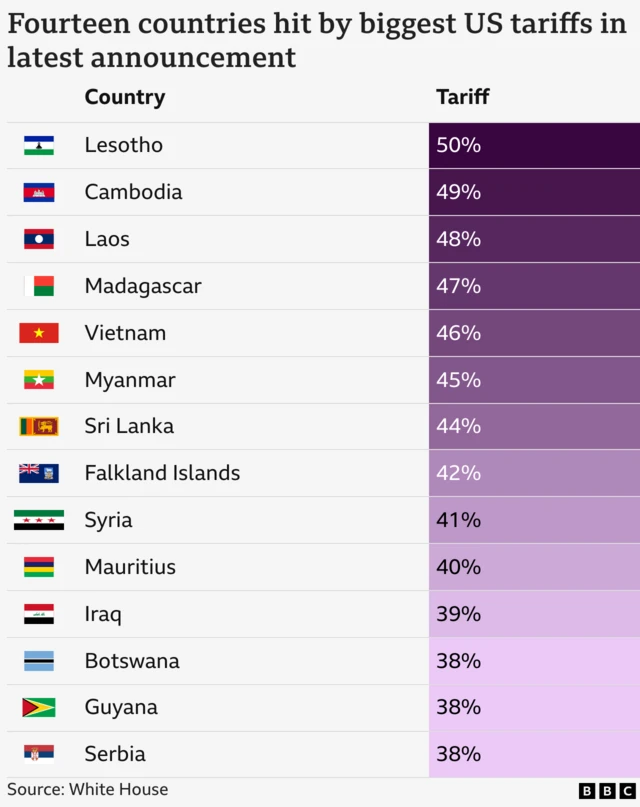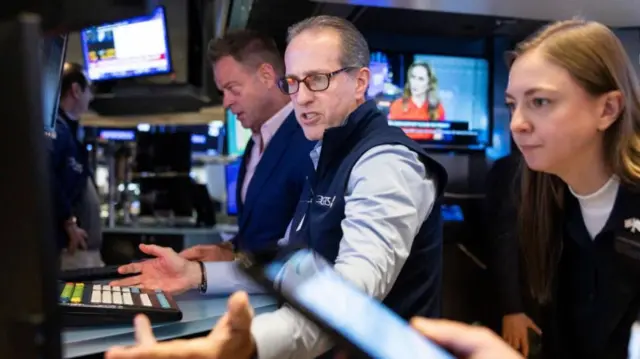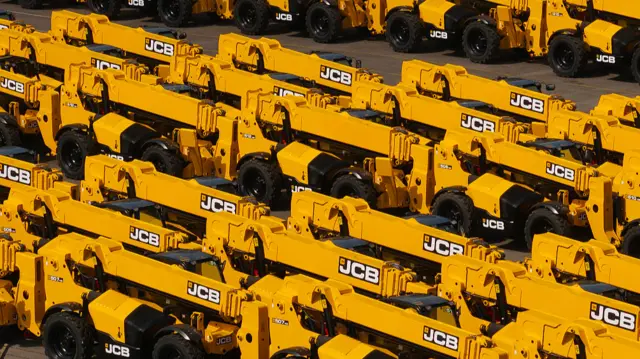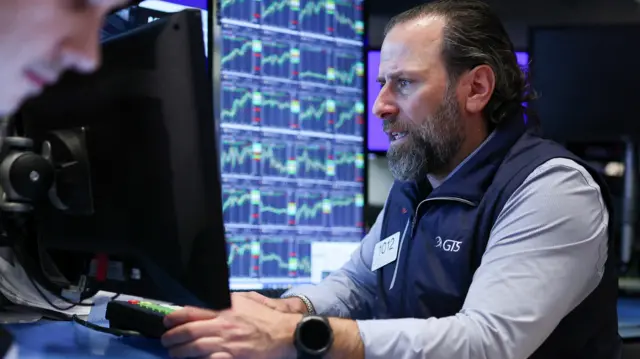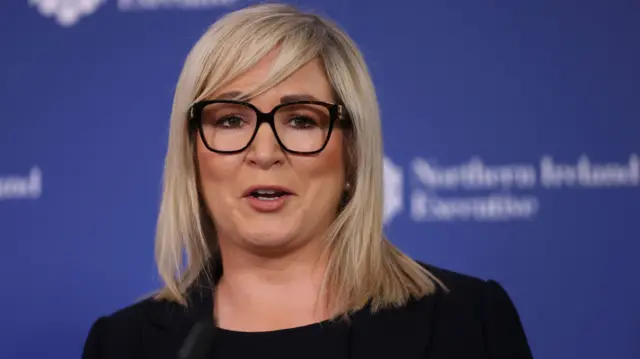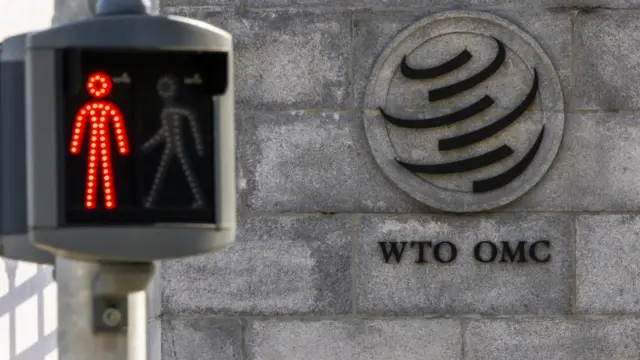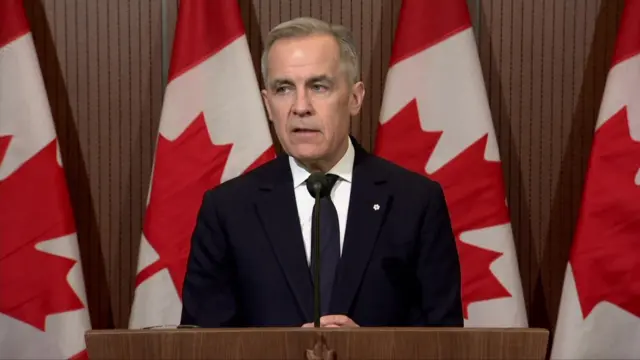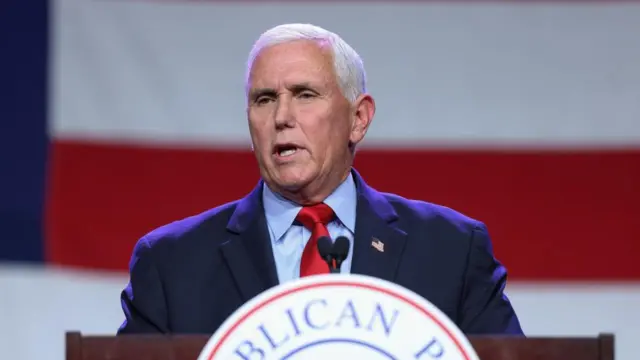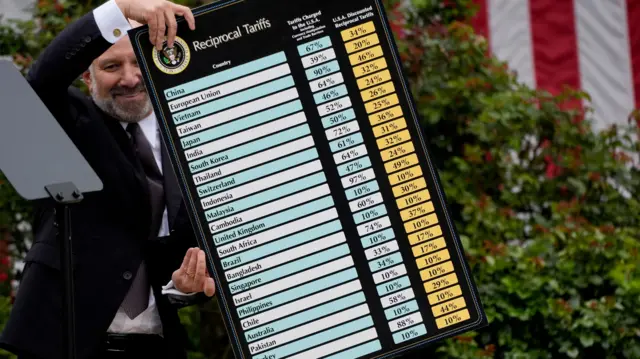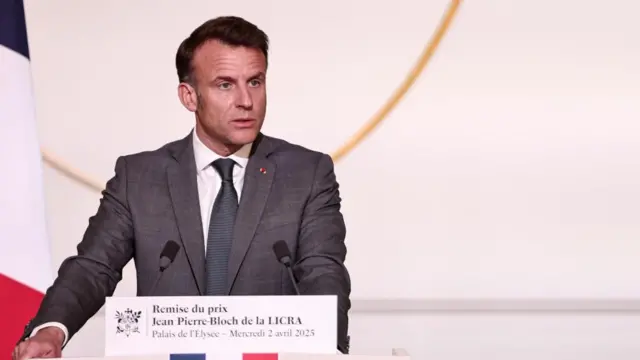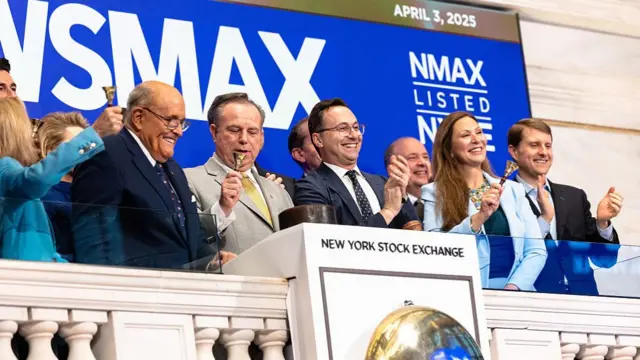WTO chief says tariffs will have substantial impact on global tradepublished at 18:50 BST 3 April
 Jonathan Josephs
Jonathan Josephs
Business reporter
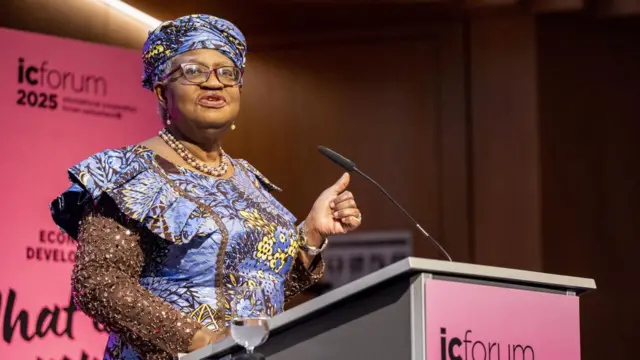 Image source, EPA
Image source, EPAThe head of the World Trade Organization (WTO) says these tariffs “will have substantial implications for global trade and economic growth prospects”.
In a statement Dr Ngozi Okonjo-Iweala says she is “deeply concerned about this decline and the potential for escalation into a tariff war with a cycle of retaliatory measures that lead to further declines in trade”.
In a sharp revision of its previous forecasts the WTO now says that it's expecting the volume of global trade to shrink 1% this year.
This compares to the previous forecast of 3% growth that it made in October.
President Trump’s global tariffs are the biggest shock to the WTO system for governing global trade in its 30-year history but the Geneva-based body says its rules still govern about 74% of all global trade.
Many countries have “reached out” to the WTO’s leadership with questions but if President Trump ignores it, as he has done in the past, retaliatory tariffs may be one of the few options they have even though Dr Okonjo-Iweala wants it to be a platform for resolving their differences as it was set-up to do.


